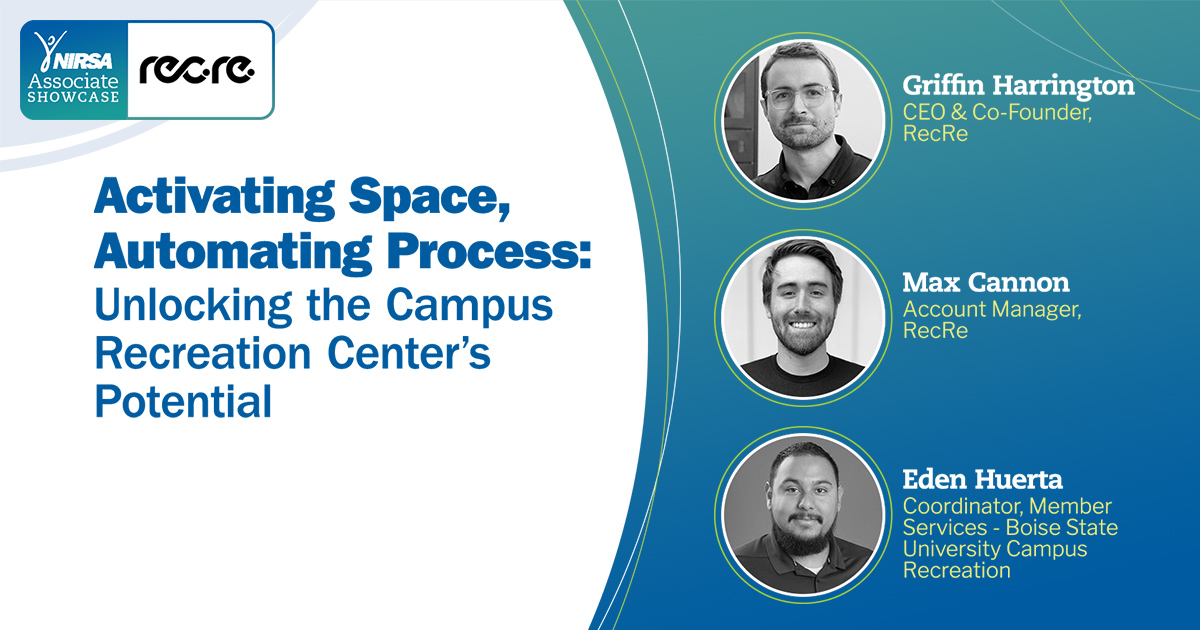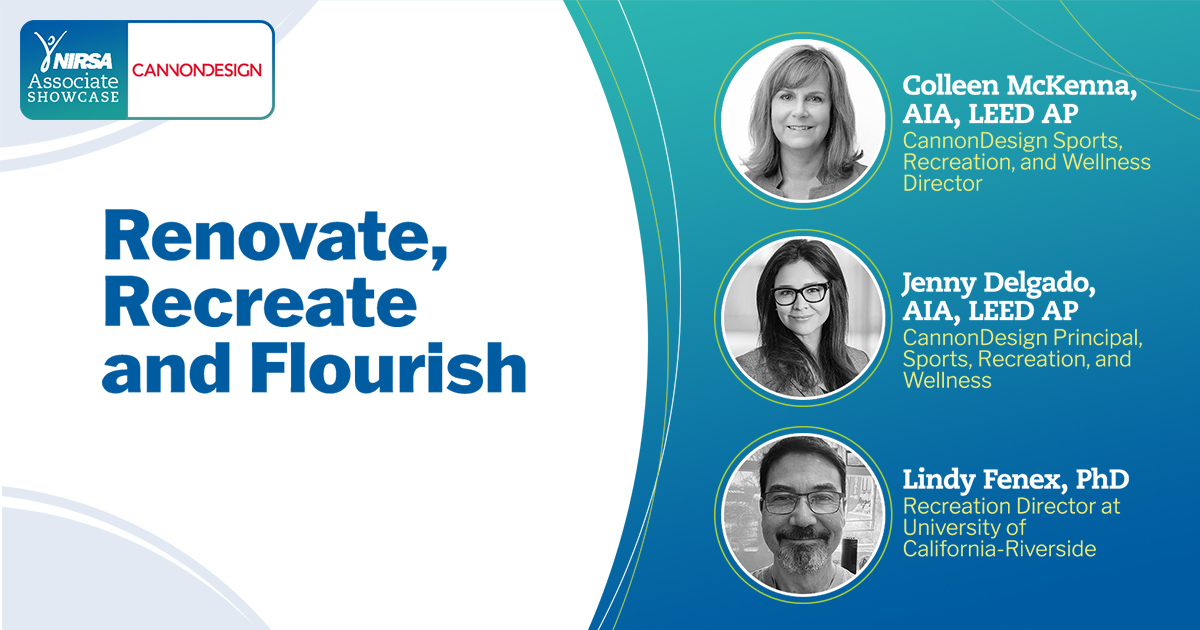Automation is revolutionizing the way recreation centers approach inventory management, offering powerful solutions to streamline processes and enhance user experiences. In a recent webinar, representatives from RecRe and Boise State University provided expert insights and practical tips about the potential of automation to activate various recreational spaces, transform inventory management, and empower rec center staff.
The webinar, “Activating Space, Automating Process: Unlocking the Campus Recreation Center’s Potential,” showcased the versatility of automation technology in managing diverse recreational environments—from traditional gym spaces to recreational outposts to specialized areas like esports arenas. By exploring case studies and real-world success stories from institutions like Boise State, Texas A&M-Commerce, and Auburn University, attendees gained valuable insights into how automation can address common challenges in facility management.
This discussion, which included a full half hour of attendee Q&A, is a can’t-miss for anyone dealing with staffing shortages, equipment tracking concerns, inventory loss, and engagement concerns at their main or satellite rec facilities. A recording of the webinar is available free for NIRSA members and nonmembers alike.
Staffing, inventory challenges at Boise State
Equipment availability and staffing shortages are common challenges faced by recreation centers. Traditional methods of inventory management, Max Cannon, RecRe Account Manager, explained in the webinar, often result in inventory loss, lack of accountability, and time-consuming tracking processes. These challenges are exacerbated in “outpost” facilities like outdoor courts, fields, and adventure spaces where visibility and oversight are limited.
This can lead to operational bottlenecks, financial strains, and increased workload for staff. Students experience long wait times, unclear equipment availability, and a lack of quality staff interaction, detracting from their overall experience.
“A big piece is having staff members to check out pieces of equipment,” Eden Huerta, Coordinator, Member Services at Boise State University Campus Recreation, said in the webinar. “If that’s their sole responsibility, often times, it’s a low fulfillment position…because you’re sitting behind a desk waiting for somebody to come ask for a basketball, and that’s the majority of your job.”
At Boise State, this type of position didn’t offer much staff development and led to high staff turnover. Eden explained that this challenge, coupled with budget restrictions and staffing shortages to cover auxiliary locations, meant the school had to pull equipment for student use.
“Footballs, outdoor soccer balls, frisbees…we no longer offer those currently here at Boise State, which makes some of those field facilities not really accessible to the regular recreational user,” Eden explained.
Bringing back equipment and improving staff fulfillment were priorities for Boise State, which looked to automation for help. Eden discovered one solution, RecRe, at the NIRSA 2023 Campus Rec & Wellness Expo.
Automation decreases staff turnover
By implementing automated systems, recreation centers can achieve operational improvements—such as better inventory management and reduced human error. Staff members gain more time for personal customer service while students enjoy a more efficient and seamless experience.
Boise State serves as a success story where automation has significantly reduced turnover and improved staff fulfillment. Eden noted that adding automation technologies like people counters, self-access doors, towel-tracking software, and RecRe’s automated inventory rentals has had a direct correlation with less staff turnover. It allows staff to “be on the floor and not locked at the desk,” Eden said, to focus on more meaningful interactions with patrons. It also gives student supervisors the opportunity to take on more high-value tasks like responsibility for the new equipment rental systems.
“When we can automate aspects of staff roles, not only do we make them more efficient, we open up their ability to do even more and take on more value and more oversight,” Max noted in the webinar. “And this is a big part of Boise’s strategic objectives.”
Automation increases student engagement at outpost facilities
Boise State has seen 8,500 rentals from 1,800 users since launching the RecRe Box in August 2023. It has one filled with basketballs right next to its indoor basketball courts. By making equipment available for students in fields, remote green spaces, and other recreational outposts, institutions can revitalize underused areas and better activate these satellite facilities.
Max shared another success story from Texas A&M-Commerce, which installed a RecRe box at a sports complex that’s 1.5 miles away from its primary rec center. Automation freed up student staffing in that facility since it allows intramural and club sports participants to check out equipment for their games and practices.
The benefits of automation extend beyond efficiency and accessibility. Real-time inventory tracking fosters responsible equipment usage, increases student accountability, and enables proactive decision-making. Providing health and wellness resources outside of the primary rec space fosters a holistic approach to student wellbeing.
Esports emerged as a notable case study, showcasing how RecRe aids in managing unique esports equipment and space requirements. With the increasing popularity of esports on college campuses, managing the associated inventory efficiently is crucial.
“You can’t have an Xbox walk away on you in the way like you could a ping pong paddle,” Griffin Harrington, RecRe CEO & Co-Founder said in the webinar.
Griffin showed examples from Oakland, Auburn and Emory universities, which use RecRe’s automated management system for esports equipment rentals. This ensures that high-value items like headsets, keyboards, controllers, games, consoles are readily available while minimizing the risk of loss or damage.
Register for the webinar recording to hear attendee discussion
Attendees had many questions for the webinar hosts and engaged them in half an hour of Q&A. Audience members asked about various topics and use cases for the RecRe Box, including:
- Outdoor equipment rentals in rugged weather
- Shared use with residence halls and student unions
- Strikes and accountability for unreturned equipment
- Limiting rental hours
- Authenticating users
- Managing damaged equipment
- Real-time availability tracking
- Sizes and customization
- Implementation costs and timelines
Register here to view the webinar recording. Those coming to NIRSA 2024 in Phoenix can see a RecRe Box in action at booth 538 in the expo hall.
- For more information about NIRSA’s Associate Showcase and sponsored content opportunities, please contact NIRSA Expo & Corporate Relations Coordinator Kelley Hungerford.
Kelley Hungerford is currently the Assistant Director of Expo & Corporate Relations at NIRSA.








